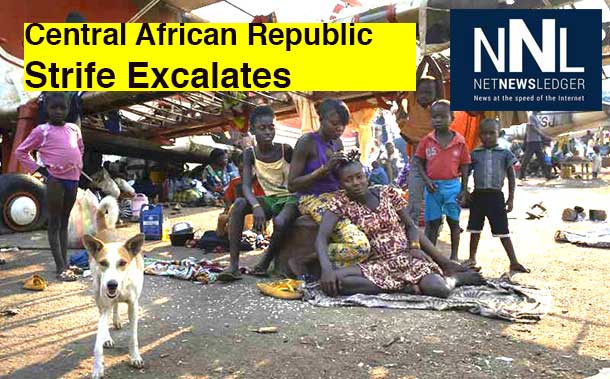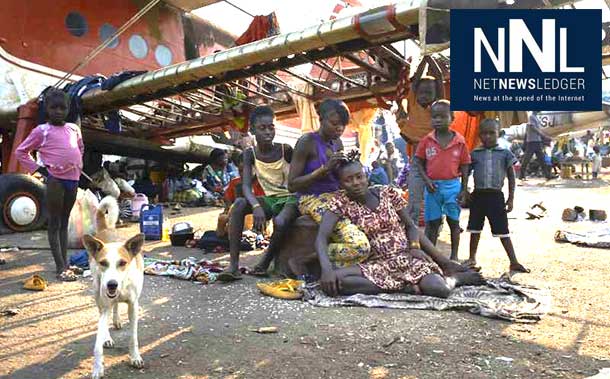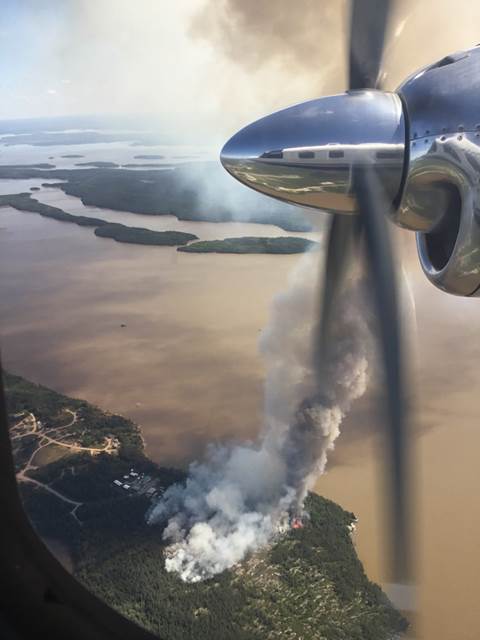

Evacuation of Thousands from Central African Republic
CENTRAL AFRICAN REPUBLIC – International – Conditions in the Central African Republic have worsened. That is leading to an emergency evacuations of the first of thousands of foreigners stranded in the conflict-ridden country. Those evacuation flights, under the supervision of the International Organization for Migration (IOM) have started Saturday morning in Africa.
The Canadian Government has advised all Canadians not to travel to the Central African Republic, and if there, and it is safe to leave to do so. “The security situation continues to deteriorate throughout the country. Inter-communal violence has resulted in several hundred deaths. Cases of rape have been reported. A curfew is in effect. Law enforcement personnel throughout the country are unable to ensure the security of civilians. If you are in CAR despite this advisory, take the necessary precautions to stay safe. There is no resident Canadian government office in CAR. The ability of the Government of Canada to provide consular assistance or assist your departure is extremely limited”.
The airlift to evacuate stranded foreign nationals from the Central African Republic (CAR) comes following appeals from neighbouring African countries. The first three IOM charter flights this weekend will repatriate some 800 Chadians from the war torn CAR capital of Bangui to the Chadian capital N’Djamena.
The 800 are part of a group of some 2,500 Chadians sheltering in a transit camp adjacent to Bangui airport, living in terrible conditions at the over-crowded and insanitary site.
The conflict in the country has displaced some 935,000 people, including some 513,000 – about half of the population – in Bangui alone. Thousands of homes have been damaged or looted. Many displaced families are thought to be seeking shelter in churches and schools, as well as in the airport camp.
IOM has received requests for assistance from Chad, Niger, Mali, Sudan and the Democratic Republic of the Congo to evacuate thousands of their most vulnerable, stranded nationals. The organization is also working with Senegal, Guinea, Burkina Faso, Côte d’Ivoire, Nigeria and Cameroon to provide post arrival re-integration assistance to migrants evacuated by their governments.
“Several concerned governments including Mali, Senegal, Niger and Chad have already organized evacuation flights, but need additional resources to cope with all the migrants wanting to leave the CAR and those arriving home, who are often destitute. IOM is helping in a variety of ways, including providing onward transport for returnees,” says IOM West Africa Director Carmela Godeau.
A total of over 60,000 migrants from neighbouring countries have already asked for assistance from their embassies in the CAR. Nearly 27,000 have already been evacuated by their governments, leaving at least 33,000 in urgent need of help.
“The evacuation of these migrants must be done quickly and in an orderly manner to avoid people trying to leave on their own overland and taking terrible risks, in desperation,” says Godeau.
Many Chadian migrants trying to return home on their own are increasingly finding themselves stranded in dangerous border areas. As of Tuesday, 7,600 Chadians, most of them women and children, had arrived destitute in the border areas of Gore and Sido in southern Chad. Many others may attempt the same route, unless they can be evacuated in an orderly operation with international assistance.
United Nations Seeks Added Funding
Facing worsening refugee crises in strife-torn Central African Republic (CAR) and South Sudan, the United Nations today appealed for $99 million in additional funding to aid 1.3 million people for the next 100 days, less than three weeks after launching an initial $360-million appeal.
“In the situations of both South Sudan and CAR, we are extremely concerned about the safety of refugees and displaced people, particularly with access being affected by the fighting and insecurity,” UN refugee agency (UNHCR) spokesperson Adrian Edwards told a news briefing in Geneva.
“Today’s appeals reflect the worsening situations in both cases, with hundreds of thousands of people now affected.”
Of the new funding, $59 million are targeted for South Sudan, where well over 1,000 people have been killed and some 300,000 others driven from their home since fighting erupted between Government and opposition forces less than a month ago.
Thousands Dead in Central African Republic
The remaining $40.2 million is destined for CAR, where thousands of people are estimated to have been killed, nearly 1 million driven from their homes, and 2.2 million, about half the population, need humanitarian aid in a conflict which erupted when mainly Muslim rebels launched attacks a year ago and has taken on increasingly sectarian overtones as mainly Christian militias take up arms.
Both requests by UNHCR, which are for the period to the end of March, follow appeals launched by the UN Office for the Coordination of Humanitarian Affairs (OCHA) on 31 and 24 December respectively on behalf of all UN agencies for $209 million for South Sudan $152.2 million in immediate support needs for a 100-day plan for CAR.
Mr. Edwards said the situation has continued to deteriorate in South Sudan, where the number of people fleeing to neighbouring countries has quickly increased to some 43,000 people, and Uganda now seeing between 4,000 and 5,000 arriving every day. Inside the country some 232,000 people have been driven from their homes, including 60,500 sheltering at 10 UN bases.
Up to 400,000 Refugees
He said the appeal included projections of additional displacement between now and April. “It anticipates that refugee numbers could rise to 125,000 and that the number of people displaced within South Sudan could reach 400,000″, he noted. UNHCR emergency operations include
Today’s supplementary appeal for CAR aims to support more than 1 million people, including 86,400 refugees in neighbouring countries and 958,000 internally displaced persons (IDPs)..
In both countries, the crises have displaced tens of thousands more people over the past three weeks and “insecurity makes assisting them more expensive, having to resort to airlifts for example when roads are not safe,” Mr. Edwards stressed.
UNHCR emergency operations include registering, sheltering and protecting refugees, providing supplies to displaced people, designing and managing camps for them, and protecting the most vulnerable among them.






